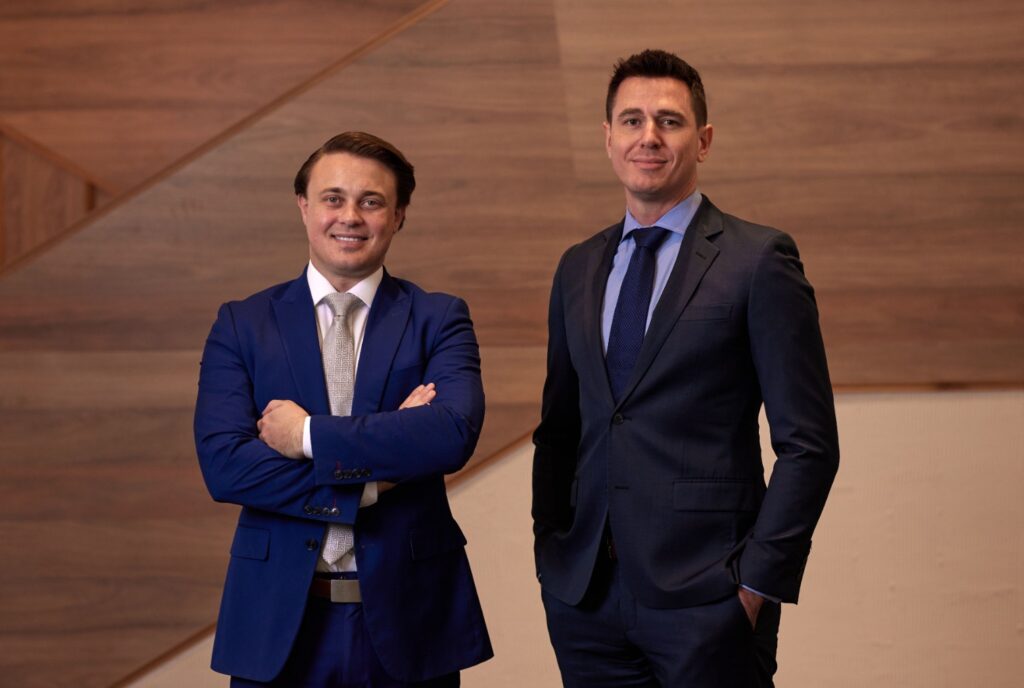Advanced Navigation has just been awarded a $5.2 million grant. As one of the world’s most determined innovators in AI robotics and navigation technology, the Moon to Mars Initiative: Demonstrator Mission Grant by the Australian Space Agency, to support NASA’s endeavour to explore the Moon and beyond to Mars.
Awarded AUD 5.2 million, the grant will accelerate development and production of the company’s breakthrough Light Detection, Altimetry and Velocimetry (LiDAV) technology. Supported by this award, Advanced Navigation will deliver a space-qualified LiDAV sensor called LUNA (Laser measurement Unit for Navigational Aid) to US-based space systems company, Intuitive Machines, as part of NASA’s ongoing Commercial Lunar Payload Services (CLPS) program.
Project LUNA will ultimately be demonstrated on board Intuitive Machines’ Nova-C lander during the final descent en route to the lunar surface. Following this demonstration, Advanced Navigation’s LUNA technology will be offered commercially for integration into landers from 2025-26.
The technology will improve the safety and reliability of autonomous landing manoeuvres, enable reliable navigation on the lunar surface, and serve as a catalyst for autonomous space exploration and transportation.
The full list of successful projects includes:
- $5.2 million for NSW-based Advanced Navigation to demonstrate the performance of its next-generation light detection altimetry and velocimetry (LiDAV) technology. This technology details a vehicle’s environment and will go to the Moon on Intuitive Machines’ Nova-C lunar lander.
- $4.4 million to WA-based International Centre for Radio Astronomy Research to build a next-generation communications network that can send data to and from objects in space, such as satellites and spacecraft, at a significantly faster rate than current technology.
- $3.7 million to SA-based QuantX Labs to develop and demonstrate quantum tech–enabled precision timing reference instruments that can improve the accuracy of positioning systems such as GPS and improve productivity in critical sectors like agriculture and resources.
- $6.2 million to ACT-based Australian National University for an innovative laser technology instrument to support NASA with space-based sensing of Earth’s gravity variations, which will advance earth science to support understanding and combat the effect of climate change.

We are humbled the Australian Space Agency has awarded Advanced Navigation a Demonstrator Mission Grant as it represents a pivotal milestone in the company’s trajectory, as we embark to be among the the first Australian technologies to reach the Moon.
Xavier Orr, CEO and co-founder of Advanced Navigation.
Our work with Intuitive Machines will enhance Australia’s sovereign Space capabilities, further unlock the commercial Space economy, and ignite a new era of innovation as we push the boundaries of scientific discoveries and exploration on the Moon and beyond.
Project LUNA powered by LiDAV technology
Spacecraft autonomy demands exceptional situational awareness and relies on multiple navigation technologies for mission success. Based on more than a decade of research and development at the Australian National University, LUNA represents a breakthrough in commercial extraterrestrial navigation. The technology delivers precise three-dimensional velocity and altitude information relative to the lunar surface. When visual references are unavailable and cameras fail due to lack of light, dust and other obscurities, LUNA can serve as a primary navigation input.
The navigation sensor will ultimately become a crucial technology that will improve the safety and reliability of complex autonomous landing manoeuvres and the confidence with which we can explore the lunar surface.
Supporting NASA’s endeavour to explore the Moon and beyond to Mars
Previously a recipient of the Moon to Mars: Supply Chain Capability Improvement Grant, the Australian Space Agency continues to support Advanced Navigation with its Demonstrator Mission Grant.
The projects being supported show just some of the many ways that space technologies are improving how we live and how we work. By helping Australian organisations like Advanced Navigation to develop their space heritage, they can break into new markets and supply chains and take their innovative Aussie technology to the world.
Enrico Palermo, Head of the Australian Space Agency
That will help them to grow, keep their ideas in Australia and generate more employment opportunities here.
Celestial exploration with technology partners
Outside of the Nova-C Lander, the light weight and performance capabilities of LUNA are well suited for Intuitive Machines Micro-Nova, a mini extreme mobility lunar vehicle also known as a “hopper”. The spacecraft will explore shadowed craters and lava tubes, using LUNA to help it navigate autonomously, regardless of ambient light conditions and lack of access to GPS.
During this project, Advanced Navigation will be collaborating with Australian Astronomical Optics (AAO) at Macquarie University to design, fabricate, and qualify LUNA’s optical head assembly to survive the extraordinarily challenging environmental conditions of space.
Advanced Navigation will also be supported by Australian company Transparent Earth Geophysics, for comprehensive flight test campaigns, and to explore terrestrial applications of LUNA for airborne gravimetry and precision navigation of airborne vehicles when GPS is unavailable or unreliable. This includes aircrafts, helicopters, commercial drones and flying taxis among other exciting applications.
Founded on a culture of research and discovery, Advanced Navigation’s mission is to be the catalyst of the autonomy revolution. Powered by a deep curiosity to apply ground-breaking technologies to uncover and explore new frontiers, the company is ultimately extending human capabilities to build a more resilient and sustainable future, with safer outcomes, on and off planet.

Good things can happen when good minds get involved with each other